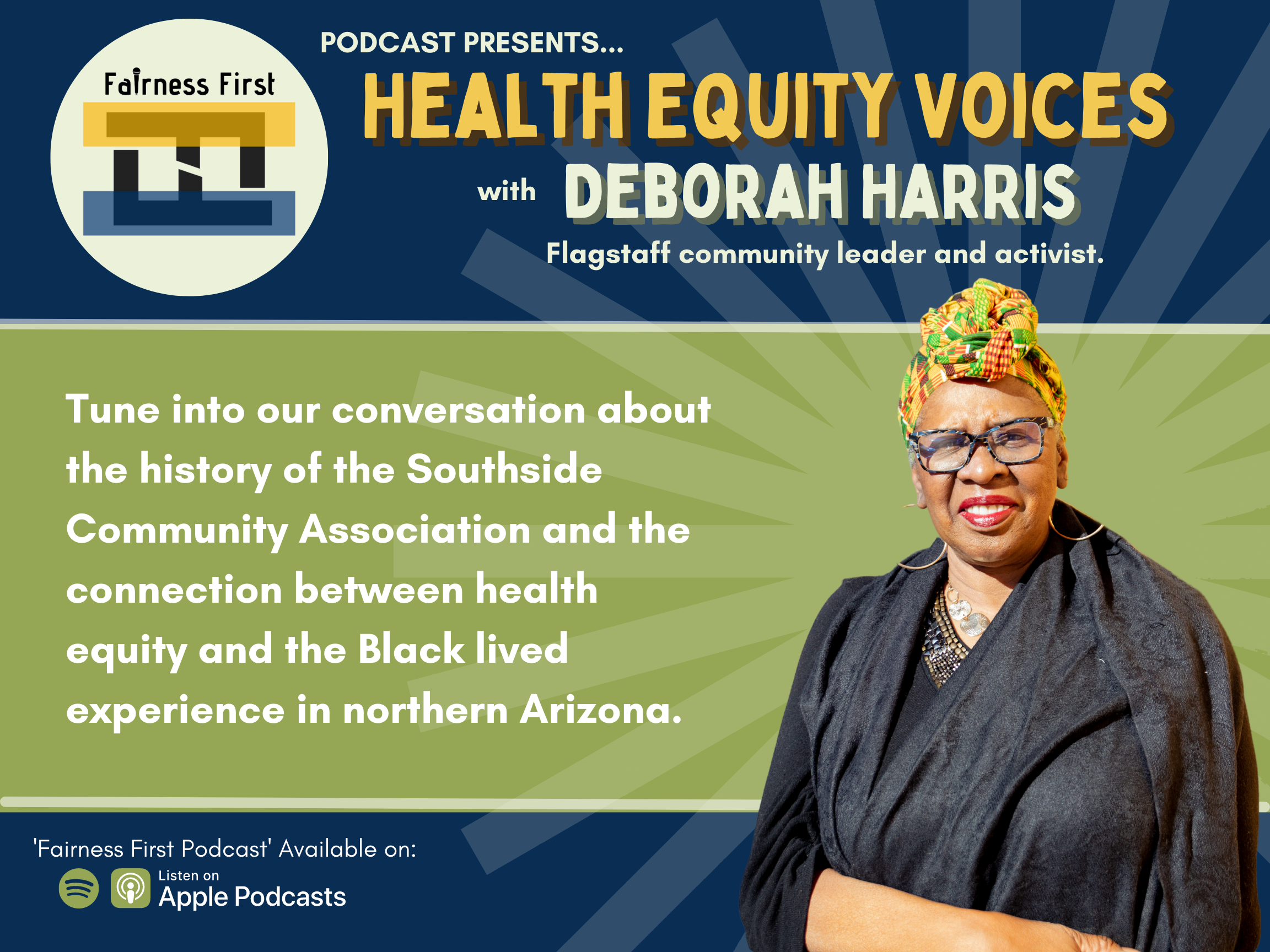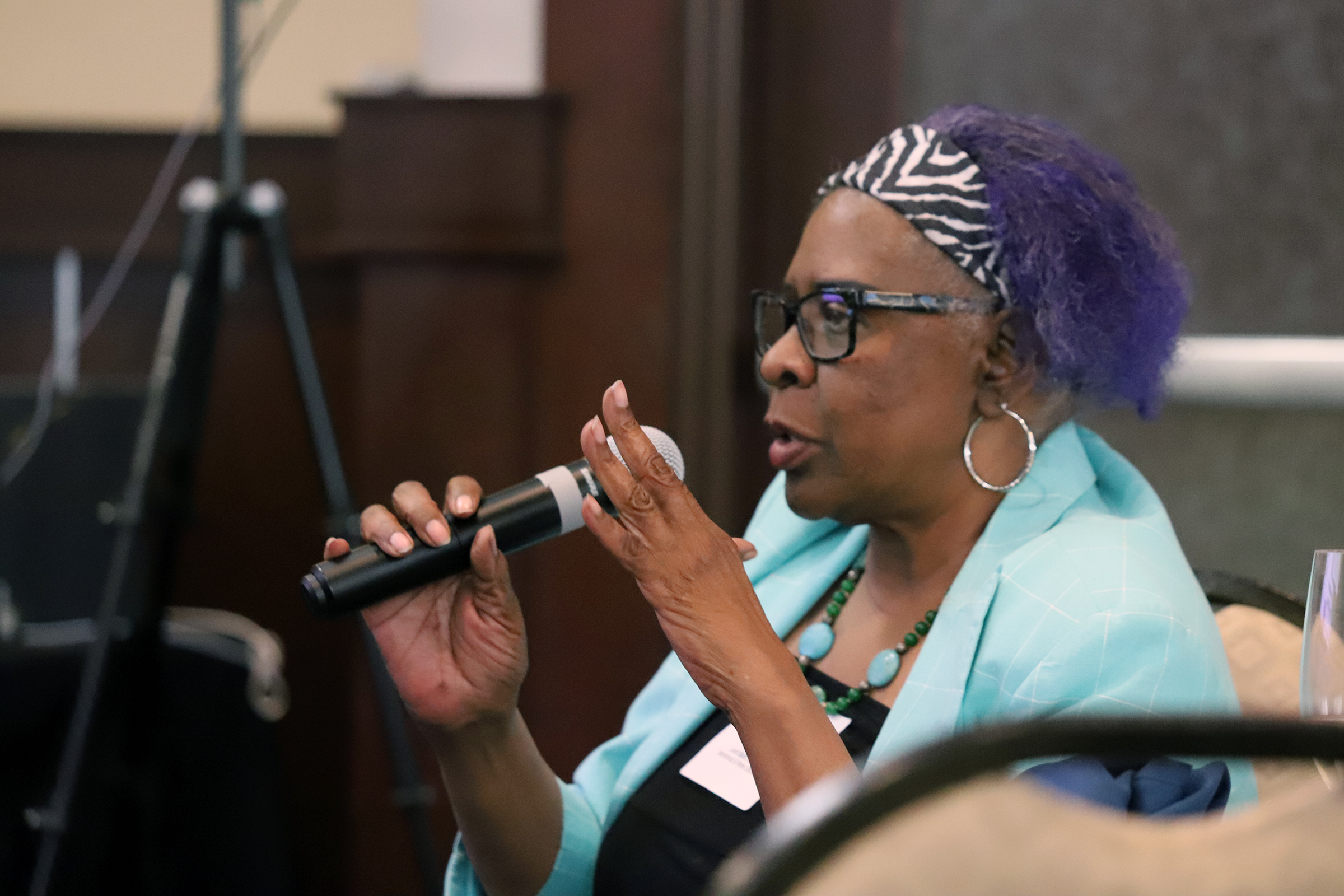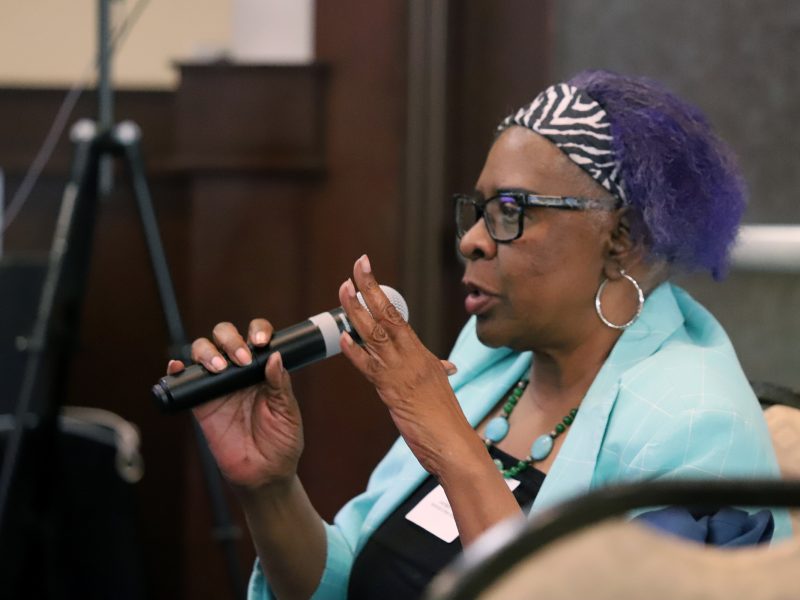Latest Fairness First podcast examines history of the Black community and health equity in Flagstaff

In the latest Fairness First “Health Equity Voices” podcast, Deborah Harris told host Alexandra Samarron Longorio that a friend had given her a pendant engraved with, “For such a time as this.”
That inscription aptly defines the community advocate’s work promoting equity and inclusion for all in Flagstaff, especially for those who are underrepresented, through her work as executive director of the Murdoch Center, home to the Southside Community Association (SCA).
“I think we all are in places where we should be when we’re supposed to be there—getting involved in the community, giving back, speaking ‘truth to power’ always because it’s important to do that,” said Harris, who worked for Northern Arizona University for 25 years before she retired in 2017.
She added, “I tell students all the time, short of it costing you your life, everything else is negotiable because you’re going to find another job. … When you are afraid, it keeps you silent, and so you must not be afraid, and you must speak whatever truth that is. For such a time as this, I just keep doing what I do until I don’t do it anymore.”
For the past 30 years, Harris has devoted her time to preserving and developing the Southside community and empowering other Flagstaff neighborhoods, such as Sunnyside, to do the same by modeling for all how to build a neighborhood that is strong and thriving.
In the podcast, Samarron, a senior research coordinator with the Southwest Health Equity Research Collaborative, discussed the history of the Southside Community. She explained that when Black workers moved to Flagstaff in the 1940s, their families came with them. They lived in homes south of the railroad tracks where there was a lack of sidewalks and streets were unpaved.
In the South Side neighborhood, both Blacks and people who are from Mexico resided alongside Indigenous communities, mostly Diné and Hopi, who lived in town and on nearby reservations, commuting to work each day. White residents lived north of the tracks, which segregated communities spatially and racially.
The SCA’s visionary goal of building a vibrant and walkable community

In the podcast, Harris talks about one of the Southside Community’s debilitating and persistent problems— addressing the Southside flooding issue.
“The sad thing is that the river was purposefully diverted into the Southside so that it could not flood the more affluent sides of town, … and so because this community was a community of color and their voices weren’t really being heard 70 or 80 years ago when that was done, it put Southside in a flood zone.”
Harris said the SCA is now working with the U.S. Army Core of Engineers and the City of Flagstaff to develop a collaborative, award-winning Rio de Flag Flood Control Project that will divert the river underground, so it no longer floods neighborhood homes and streets. She said the original plan did not include Southside residents’ input.
“[In a meeting,] We were able to say, ‘This isn’t working for us and so stop it [the original plan that would not benefit the Southside Community].’ And the city stopped,” she said.
Harris said that during the break, the SCA met and got “input from the voices that needed to have input” to develop a new plan.
“It’s not often that a community neighborhood really can work with the city, and both come away feeling pretty good about the work that they’ve done,” Harris said.
Recently, the Murdoch Center began a series of town hall and community dialogue discussions called Lived Black Experience, which explores topics such as social justice, the criminal justice system, institutional racism, mental health, economic impact, inclusion and representation.
To learn more about the SCA or to volunteer, visit their website. Listen to Fairness First on Apple podcasts through iTunes, Podbean, Spotify or the Fairness First podcast website.
The Southwest Health Equity Research Collaborative is a grant-funded initiative (NIMHD grant # U54MD012388) of the Center for Health Equity Research at Northern Arizona University.
